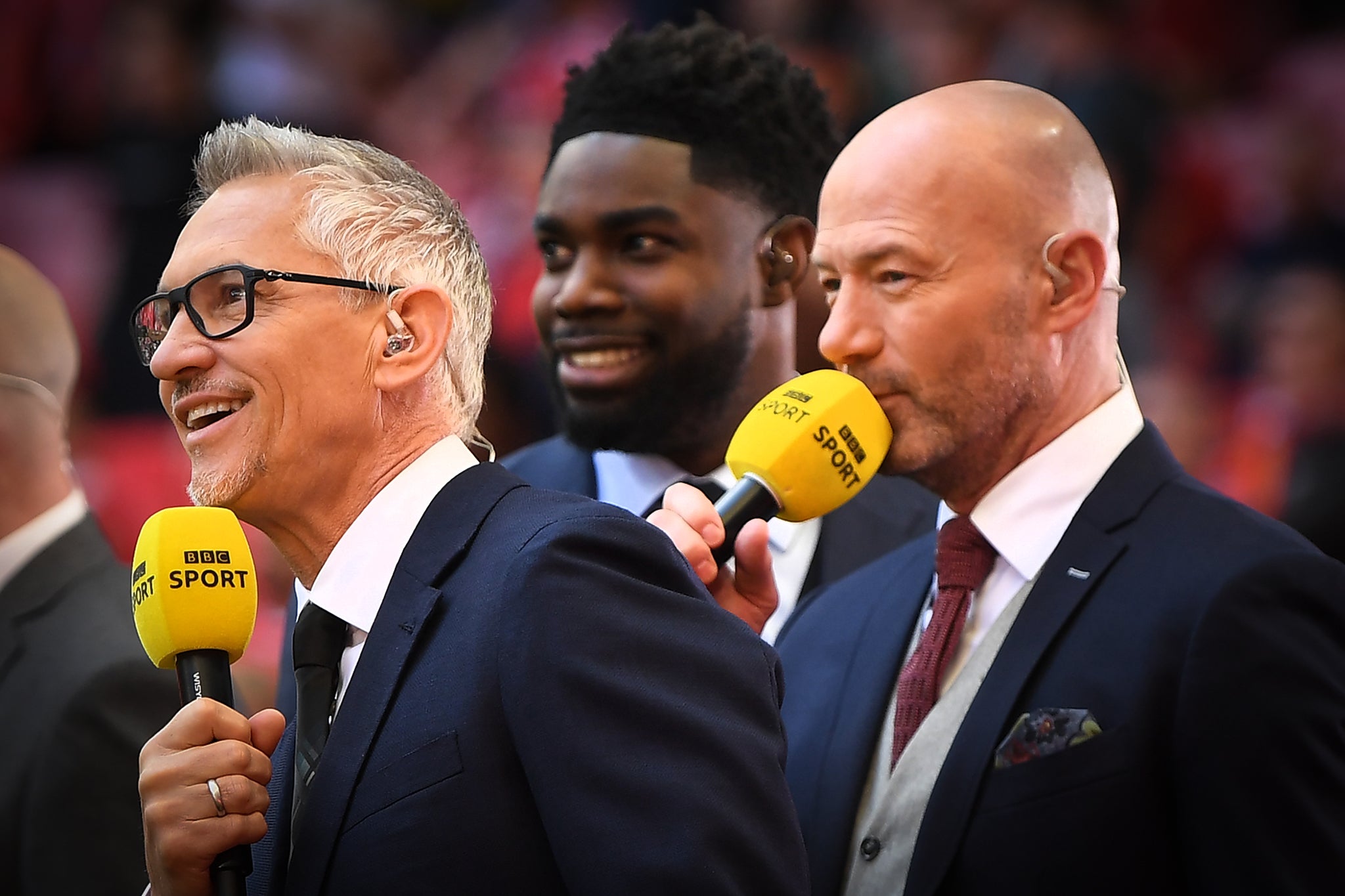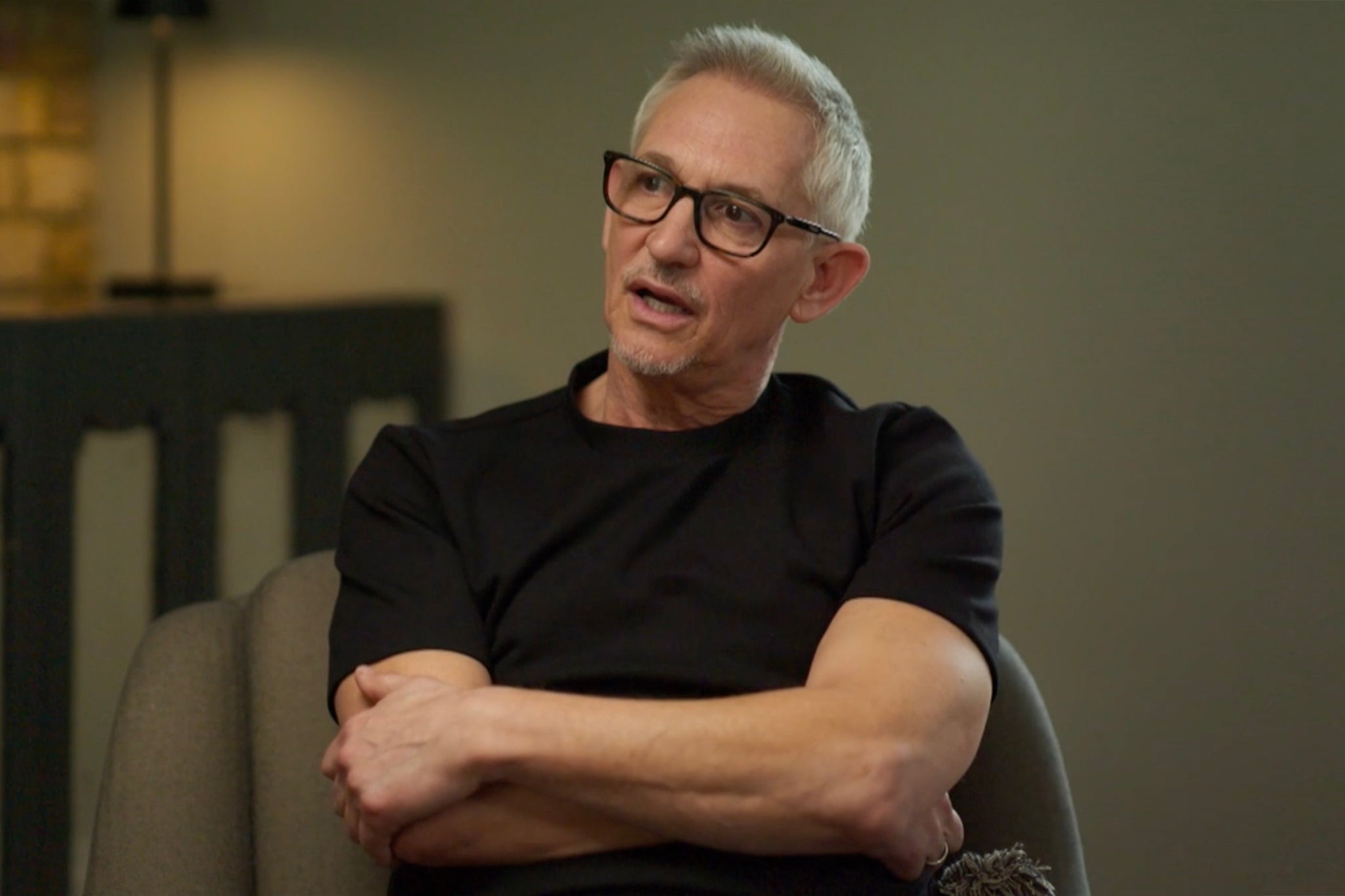When it comes to Gary Lineker, the BBC has scored a spectacular own-goal
When it was announced that Lineker was not going to re-sign his contract with the broadcaster, we were told it was by mutual agreement. Now he’s saying there were senior figures at the BBC who wanted him out... Jim White looks at a conscious uncoupling where Lineker is still the winner

When Gary Lineker suggested to Amol Rajan in their interview this week that the BBC didn’t want him to carry on in his role as the presenter of Match of the Day, he wasn’t being paranoid. They really were out to get him. Late last year, when it was announced that at the end of the football season in May, Lineker would be leaving the presentational chair he has occupied for more than a quarter of a century, public statements insisted that both parties had agreed not to re-sign a contract to continue. In football vernacular, it was a mutual decision.
This, allegedly, was not the case. Lineker claims that he had become aware that senior figures at the corporation, including the freshly recruited head of sport Alex Kay-Jelski, would not be entirely unhappy to see him go.
When they were negotiating over what happened next when his contract came to an end, he got the feeling they wanted to see the back of him. It seems, as decisions go, this was about as mutual as Donald Trump’s imposition of tariffs on some rocky outcrop in the South Atlantic occupied only by penguins.
Because the fact is, from what I’ve seen, I’d imagine that Lineker was more than keen to stay. He appeared to love presenting the weekly football highlights show. His jovial presenting style suggests that he takes great pleasure in travelling to Salford every Saturday to preside over the preparation and broadcast of the show, ensuring it – and he – is at the centre of the sporting conversation. He may be in his sixties, yet Lineker shows no sign that he wants to slow down, or that his ambition is in any way sated.
But, comfortable in his own skin and even more comfortable in his own bank account (his overall net worth is estimated to be around £30m), perhaps Lineker felt this wasn’t the time to make a fuss or look like a curmudgeon. That’s not Gary’s style, particularly as a compromise was to be reached to enable him to front live coverage of FA Cup and World Cup games for another year.
Which makes you wonder, if he was right – and word within the corporation suggests he was – why on earth would the BBC want to see the back of him? He is, after all, not only the sharpest presenter of sport in the country, but among the finest in any field. Relaxed, funny, adept at bringing the best out of his studio pundits, he is a model for any aspiring young wannabe on precisely how it is done. And it is not easy.
The interesting thing is that in the nostalgic clips Rajan played of Lineker in his early days as a screen presence, he gave very little hint of what was to come. Undoubtedly good-looking (the BBC news report that Rajan showed of him in 1986 returning back from the Mexico World Cup that established his name as a player insisted he was “a big hit with the girls”), he nevertheless appeared cripplingly self-conscious, uneasy, his East Midlands twang blanding out any character.

But, just as he had on the training ground, he worked on his delivery. He had voice coaching. He learned how to relax on camera. By the time of the 1990 World Cup, when he made himself available to television reporters at every opportunity, he was already an entirely different proposition.
And when he retired as a player, his route into a second career on the box was already clear and obvious. Learning alongside the master Des Lynam, he simply got better and better at the job. Now he is untouchable. On screen, he is like your mate in the pub: warm, amusing, approachable.
Well, not everybody’s mate in the pub... Without question, he has his detractors. For those elements keen on deriding the corporation, his salary (at £1.3m) became a stick with which to beat the BBC. This, after all, is taxpayers’ money he is taking (and too much of it, many reckoned). Lynam, incidentally, has long suggested it was his fault that Lineker was propelled into the higher echelons of BBC earners.
In 1999, Lynam defected to ITV to present their short-lived equivalent of Match of the Day. The independent channel had wanted Lineker and Alan Hansen to join their new signing and dangled eye-watering offers in their eyeline. The BBC was obliged to inflate their salary to keep them in place. And ever since, Lineker has benefited from their largesse.

But there is something beyond his salary that infuriates his critics. For them, he is too outspoken on issues outside the game. Stay in your lane, they shout as he makes his liberal views known on social media. When he railed against government policy on asylum seekers, the outcry – in several cases from those who self-define as stalwarts of free speech – was loud, long and vicious. Shut him up, sack him, get rid. In panic mode, the BBC suspended him from duty. Then immediately climbed down when his colleagues demonstrated solidarity by withdrawing their labour.
Lineker told Rajan that, were he gifted the possibility of reliving things, he wouldn’t issue his tweet again. Not because he felt he was wrong. Far from it. But he believed the negative response was entirely out of proportion. And feared the ridiculous brouhaha stirred up by it might bring damage to the show.
So was it this that lay behind his new boss’s thinking: Lineker’s contract is up for renewal, imagine how much easier things would be without all the noise around his salary and his politics?

Which, if true, must be the most self-defeating response in broadcasting history. Noise is precisely what television thrives on. It was Lineker who put the BBC programme at the centre of the national conversation. It was Lineker who made it an appointment to view. It was Lineker who turned a collection of football highlights into compelling television.
But that is what it appears they did at Broadcasting House: they sought an easy life. For sure, all three of those chosen to succeed him are more than capable of holding the fort. Kelly Cates, Gabby Logan and Mark Chapman are all great talents, superb in their own way. But the fact is, none of them are Gary Lineker. More to the point, none of them have the extra cachet that he brings to the job.
Not that we should worry too much about Lineker. His “The Rest Is…” franchise is the most successful brand in podcasting, the broadcasting equivalent of a cash dispenser in the basement of his house in Barnes. So much so, the BBC still employs him – and some of his co-conspirators – to produce soundalike podcasts for them. Clearly, one part of the corporation remains more than aware of what pulls in the crowds. When he finally hangs up his microphone after presenting the World Cup final next July, how they will miss him. As you do when you lose the best.



Join our commenting forum
Join thought-provoking conversations, follow other Independent readers and see their replies
Comments